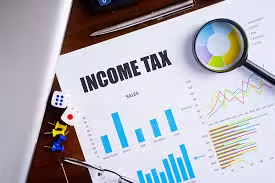Industry body PHD Chamber of Commerce and Industry (PHDCCI) has urged the government to significantly reduce personal income tax rates for individuals earning up to ₹50 lakh annually, while reserving the highest 30% tax rate for those earning above that threshold.
Currently, under the new income tax regime, individuals with annual incomes exceeding ₹24 lakh are subject to the top tax rate of 30%.
In its pre-Budget recommendations submitted to Revenue Secretary Arvind Shrivastava, PHDCCI proposed a series of reforms in both direct and indirect taxation ahead of the Union Budget 2026, which Finance Minister Nirmala Sitharaman is set to present in February.
Key Proposals on Direct Tax
The chamber suggested lowering the tax burden on individuals, partnership firms, and LLPs, arguing that lower rates improve compliance and boost collections.
It cited the corporate tax cut—from around 35% to 25%—which coincided with a rise in corporate tax revenue from ₹6.63 lakh crore in 2018–19 to ₹8.87 lakh crore in 2024–25.
“The moderation of tax rates has resulted in higher compliance and increased revenue,” PHDCCI said, noting that personal taxpayers currently face effective rates of up to 39% when surcharges are included.
The chamber proposed the following revised tax structure:
- Up to ₹30 lakh income – 20%
- ₹30 lakh to ₹50 lakh – 25%
- Above ₹50 lakh – 30%
According to PHDCCI, such a structure would boost tax buoyancy and provide major relief to the middle class.
Reintroduction of 15% Tax Rate for New Manufacturers
PHDCCI also called for the reintroduction of Section 115BAB of the Income Tax Act, which earlier allowed a 15% concessional tax rate for new manufacturing companies. The section, introduced in 2019, expired on March 31, 2024.
The chamber said reviving this incentive could attract foreign investment, create jobs, and help India emerge as a global manufacturing hub.
Other Direct Tax Suggestions
The representation also covered:
- Buyback tax rationalization
- Reforms in payments to MSMEs
- Simplified TDS/TCS certificate processes
- Expansion of the presumptive tax scheme
- Additional deductions on dividend income
Indirect Tax Recommendations
On the GST front, PHDCCI proposed:
- Mandatory faceless assessments and audits, similar to the income tax framework
- Availability of input tax credit (ITC) on advance payments for services after GST is paid, even before receiving the invoice
- Refund of GST Compensation Cess to duty-free operators for “Made in India” goods sold at international airport departure zones
- Allowing companies with multiple GST registrations under one PAN to transfer ITC between units
PHDCCI emphasized that these measures would simplify compliance, improve ease of doing business, and enhance tax efficiency across sectors.

